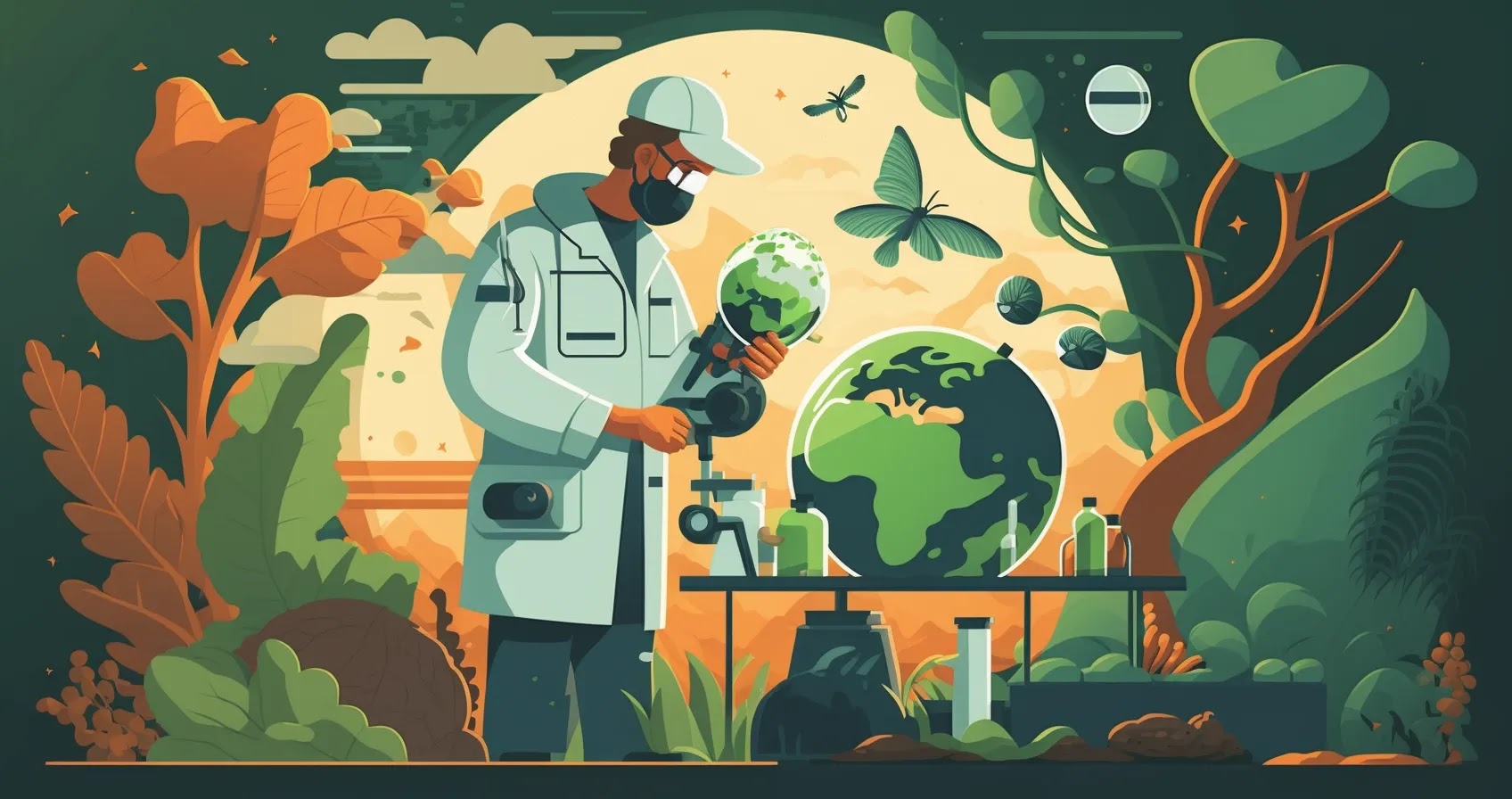Are you passionate about the environment and want to make a difference in the world?
Then becoming an Environmental Scientist might be the perfect career for you! Environmental Scientists play a critical role in protecting and improving the natural world, and their work is increasingly important in today’s society.

Quick Navigation:
Reasons why you should become an Environmental Scientist
Environmental Scientists are in high demand today due to the growing concerns about environmental issues such as climate change, pollution, and sustainability.
By becoming an Environmental Scientist, you will be able to make a significant impact on these issues by working to identify and solve environmental problems.
Moreover, this profession provides you with an opportunity to work in a wide range of fields, including government agencies, non-profit organizations, and private companies.
How to become an Environmental Scientist
To become an Environmental Scientist, you will typically need a bachelor’s or master’s degree in environmental science, biology, chemistry, or a related field.
You will also need to gain practical experience through internships, research projects, or entry-level positions. Additionally, obtaining certifications and licenses can help you stand out in the job market.
Skills for Environmental Scientists
Environmental Scientists need to possess a range of skills, including strong analytical, critical thinking, and problem-solving skills.
They should also have excellent communication skills and the ability to work in teams. Additionally, knowledge of environmental laws and regulations, as well as scientific research methods, are essential for success in this field.
Career development in Environmental Science
Environmental Scientists can advance their careers by gaining experience and expertise in their area of specialization. They can also pursue higher education, such as a Ph.D., to become a research scientist or professor.
Moreover, Environmental Scientists can take leadership positions, such as managing a team or directing a project.
Requirements of Environmental Scientists
Environmental Scientists are required to have a thorough understanding of environmental laws and regulations, as well as the ability to conduct scientific research.
They should also possess knowledge of environmental data analysis and modeling, environmental sampling, and laboratory techniques. Additionally, many employers require Environmental Scientists to have a valid driver’s license and be willing to travel to field sites.
Interview preparation for Environmental Scientists
When preparing for an interview as an Environmental Scientist, be sure to research the company and its mission.
You should also be prepared to discuss your relevant experience and skills, as well as your knowledge of environmental laws and regulations. Additionally, you should be able to explain how you would approach solving environmental problems and contribute to the company’s goals.
Work-life balance for Environmental Scientists
Environmental Scientists often work in a variety of settings, including laboratories, field sites, and offices. They may also need to work irregular hours, such as weekends or evenings, to meet project deadlines. However, many employers offer flexible schedules and work-from-home options to promote work-life balance.
A day in the life of an Environmental Scientist
Here is a typical day in the life of an Environmental Scientist:
| Time | Activity |
|---|---|
| 8:00 AM | Check and respond to emails |
| 9:00 AM | Conduct fieldwork to collect environmental samples |
| 12:00 PM | Lunch break |
| 1:00 PM | Analyze environmental data in the laboratory |
| 4:00 PM | Attend a project meeting with colleagues |
| 5:00 PM | Prepare project reports and presentations |
FAQs
Q: What is the average salary for Environmental Scientists?
A: According to the Bureau of Labor Statistics, the median annual salary for Environmental Scientists and Specialists is $76,530 per year $36.79 per hour.
Q: What are some challenges faced by Environmental Scientists?
A: Environmental Scientists often face challenges such as limited funding for projects, changing regulations, and public resistance to environmental initiatives.
Q: What are some common specializations within Environmental Science?
A: Some common specializations within Environmental Science include air quality, water quality, soil science, ecology, and sustainability.
Wrapping up
Environmental Science is a rewarding and meaningful career that provides an opportunity to make a positive impact on the world. By pursuing a degree in this field, gaining practical experience, and developing essential skills, you can become a successful Environmental Scientist and contribute to the protection and preservation of our planet.






